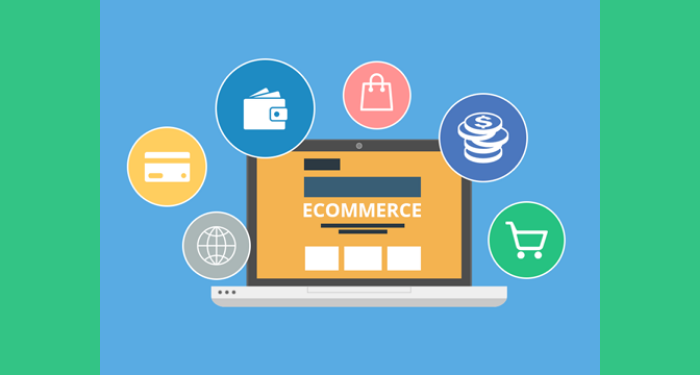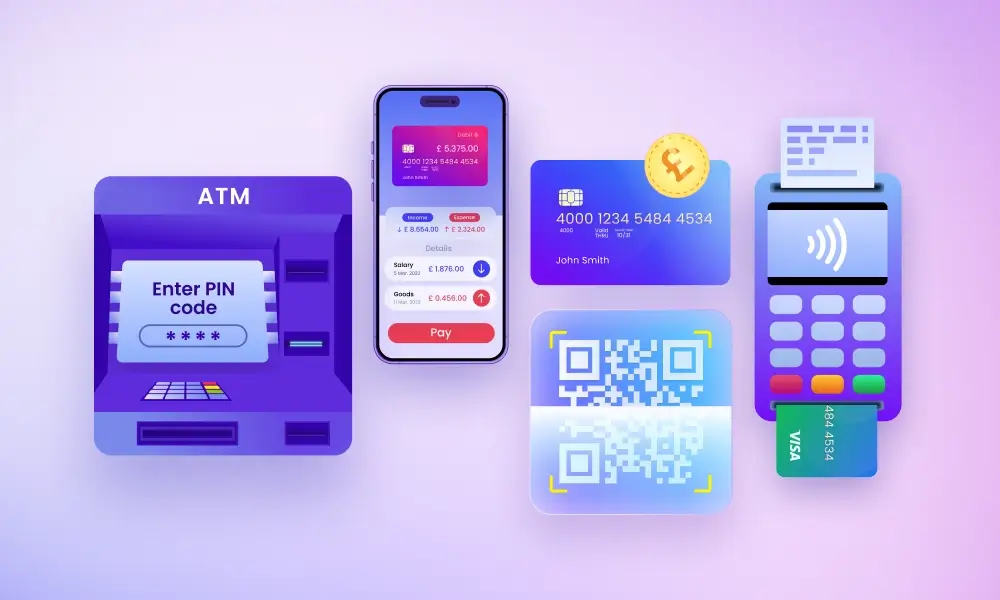How to choose an e-commerce payment platform starts with knowing the game. Your business thrives on sales, right? So, picking a payment platform can’t be an afterthought. It’s the engine that powers your cash flow. Consider these 5 key factors to steer clear of cart abandonment and sky-high fees. We’re diving into the payment gateway ecosystem to break down the choices. We’ll sift through payment processors, dissect features, weigh costs, and amp up security. And you bet, we’ll give a boost to user experience and conversion rates. Stick around for an easy-to-grasp guide that will lock down your payment process, making it the least of your worries.
Understanding the Payment Gateway Ecosystem
Selecting the Best Payment Gateway
When choosing the best payment gateway, think about your customer’s needs first. Ask, “What payment methods do they prefer?” Your answer nails what you should offer. Then, check if the gateway fits well with your store’s setup. It must gel with your e-commerce platform.
Comparing Payment Processors
Now, let’s put payment processors under the microscope. Do they promise a secure payment path for your customer’s info? Security is king in online sales. Peek at their fees, too. Lower costs mean more profit for you. Compare payment processors to find your match. Always think about how fast they can move money. You want your sales to fly, not crawl.
When selecting the best payment gateway, you should deliberate over a few crucial things. These things will make sure you pick a system that grows with your business. Here’s a rundown for you:
- First, consider the payment methods your customers use most. Do they use credit or mobile payments more? You need a solution that handles what they like.
- Next up, you should look at how the gateway ties into your e-commerce website. Can you link them up without a headache? The right fit makes everything smoother.
- Security is a big deal. You want your buyers to trust you. So pick a gateway that has strong fraud tools and follows safety standards. This keeps everyone’s money safe.
- Your pocket matters as well. Figure out all the fees you’ll pay, not just the obvious ones. Some gateways offer a deal that seems cheap but may have hidden costs. Get to the bottom of it.
- Lastly, is your store ready to go global? If yes, you might want a gateway that accepts different currencies. It opens doors for customers all over the world.
For a payment processor, what’s crucial is security, speed, and reliability. These factors will reassure your customers and keep your business humming along. Check for reviews that highlight these aspects. This helps inform your choice.
You need to think about things like:
- How tight is their security? You want your customer data locked down tight. Go for a service that prioritizes this.
- Assess the speed of payment processing. A slow processor can put customers off finishing their buy. You lose sales that way.
- Reliability is your third checkpoint. Your chosen processor should have a strong track record. Downtime means lost money, so reliability is crucial.
- Also, consider how easy it is to set things up. A difficult setup can mean more money spent on getting help.
- And let’s not forget customer support. How good is it? Can you get help quickly if something goes wrong?
Choosing the right payment gateway and processor is like picking a partner for your business. They need to support you and help you sell more, without causing trouble. Take your time. Look at all the options. Then pick the best partner for your online shop.
Assessing Payment System Features and Costs
Understanding Payment Platform Fees
When you’re setting up shop online, picking a payment platform is a big deal. You want one that’s easy to use, safe for your shoppers, and doesn’t take too big of a bite out of your profits.
One of the first things to check out is how much it’s going to cost you. Payment platforms have fees, and they can add up. You’ve got set-up fees, monthly fees, and charges each time someone buys from you. Watch out for hidden fees too. They can sneak up on you!
To keep more money in your pocket, you’ll need to do some homework. Look at the fees each platform charges. Think about how much you’re selling and match that with a payment system that makes sense cost-wise. If you’re selling a lot, maybe a higher monthly fee but lower transaction costs work better.
Comparing Transaction Fees for E-commerce
Here’s where things can get tricky. All these platforms have different ways of charging every time someone buys from you. Some take a fixed amount per sale, others take a percentage, and some do both. It’s like comparing apples and bananas.
You’ve got to break out the calculator and crunch those numbers. If you’re selling pricey items but not a lot of them, a lower percentage fee is usually better. If you’re selling lots of cheaper items, a lower per-transaction cost could save you cash.
And remember, customers like options. Some like paying with cards, others with mobile apps or even local payment methods. More options could mean more sales, but could also mean more fees. So, you need to balance what your customers prefer with what won’t cost you a fortune.
Also, think about where your customers are. If you’ve got people buying from all over the world, you’ll need a platform that can handle different currencies. And not just handle them, but do it without charging you a small fortune.
Selecting a payment system isn’t just about fees. You want to grow your business, right? So, make sure the platform can grow with you. Can it handle more sales as you get bigger? Can you add new payment methods without a headache? You need a platform that won’t hold you back.
In the end, you have to think hard about what you’re selling, who’s buying, and how they want to pay. This will lead you toward the best payment systems for your online sales.
Don’t rush your choice. It’s a big part of your business. Get it right, and it can help you sell more, make your customers happier, and keep a few more dollars where they belong – with you!
Ensuring Payment Security and Compliance
E-commerce Payment Security Standards
When selling online, keeping customer data safe is a must. You must choose a payment gateway that follows strict rules. These rules protect buyers’ card details and their personal info. Imagine a lock on a door, but for online shopping. You want the best lock to keep thieves out.
What lock is right for you? Look for payment systems that match the Payment Card Industry Data Security Standard (PCI DSS). This means they keep card info safe. Think of PCI like a superhero shield. It stops bad guys from stealing card details.
Also, check if the gateway offers extra security features. Things like fraud prevention tools. These are like alarm systems. They warn you when something looks wrong with a payment.
Now, having these standards is one thing. Making sure they work all the time is another. You’ll want a system that does security checks often. This way, you know the shield is always up.
Evaluating E-commerce Payment Compliance
Compliance isn’t just about following rules. It’s about making sure you don’t get in trouble. And it helps you avoid costly fines. For your online shop, being on the right side of the law is big. Otherwise, it’s like driving a car without a seatbelt. Not safe at all.
First, understand what laws apply to your business. Each country has its own rules for online sales. Payment processing for business can cross borders. So, your system must handle more than one country’s laws.
Next, think about your customers. They will trust you more if you follow the law. The more they trust you, the more likely they are to buy from you. So, having a secure payment solutions for online shop isn’t just nice. It’s key to your shop’s success.
Then, it’s time to compare payment processors. Ask yourself, does it check all the boxes for compliance? Can it adjust if laws change? You want a flexible system. Like clay, not concrete. It should shape to new rules easily.
Remember, every time you take a card, there’s a risk. Being compliant helps lower that risk. It makes sure a small mistake doesn’t become a big problem.
Always keep in mind, the safest road is the one with clear signs and rules. In e-commerce, compliance is your road map. And a good payment gateway is your GPS. It keeps you heading in the right direction.
In summary, think of your payment platform as your online store’s guardian. It should not only be tough against thieves but also know the path of the law by heart. When you pick one that’s both strong and smart, you sleep better at night. And so do your customers.
Enhancing User Experience and Conversion
User-Friendly Checkout for E-commerce
When you set up your online store, picking the right payment system matters a lot. The key? Make it easy for your customer to pay. A tough checkout can scare buyers away. I’ve seen it happen!
Think about the last time you bought something online. Was it easy? Did it feel safe? Your customers want that same feeling. Make sure the checkout is simple and quick. Use familiar payment methods. Most folks like using credit cards or mobile wallets. Offering these can make a world of difference.
If you have more than one item in your store, let customers review their carts with ease. It’s a plus if they can change item counts or go back to shopping without a fuss. This flexibility can increase sales.
Impact of Payment Gateways on Conversion
Now, let’s talk about payment gateways. They are your cash register online. The best ones can boost your sales big time. Here’s how:
Speed is king. If payments are slow, customers might leave. You need a lightning-fast system. And it’s got to be rock-solid reliable. If it’s down even once in a while, folks might not come back.
Next, think about fees. High fees can eat up your cash. Compare gateways to find low fees and great service. Remember, even pennies count when you’re selling a lot.
Some stores go global. If that’s you, multi-currency support is a must. This lets your customers pay in their money, which they’ll like. Also, look for tools to stop fraud. These keep your shop safe.
Lastly, make sure your payment system grows with you. Starting small? You’ll get bigger – your payment solution should too.
Choosing the best payment system needs time and thought. Look at what each one brings to the table. Think about your needs, today and tomorrow. Your payment gateway is your partner in sales. Make it count!
As an expert diving into the world of online payments, we’ve covered key areas: choosing a payment gateway, comparing processors, and understanding fees. We’ve also seen how crucial security and user experience are. By grasping these concepts, you can pick a payment system that’s cost-effective, secure, and user-friendly, boosting your e-commerce site’s success. Always think about the balance of features, fees, safety, and how easy it is for customers to pay. If you get this right, your online shop should see more happy customers and better sales. Remember, the right choice leads to trust and growth for your online business!
Q&A :
What factors should you consider when selecting an e-commerce payment platform?
Choosing the right e-commerce payment platform is crucial for a smooth transaction experience for both businesses and customers. It’s important to consider the transaction fees, which can eat into profit margins if not carefully negotiated. Security is non-negotiable, as protecting customer data is paramount to maintaining trust and complying with regulations. Integration capabilities with your existing e-commerce system and shopping carts ensure a seamless checkout process. You should also evaluate the user experience, including ease of use and payment options offered, to cater to a wide customer base. Finally, consider the customer service and support provided by the payment platform, as this can significantly impact your ability to resolve issues quickly.
How does the choice of an e-commerce payment platform impact customer experience?
The choice of an e-commerce payment platform significantly impacts the customer experience by dictating the fluidity and convenience of the checkout process. A platform that offers a wide range of payment methods (credit cards, digital wallets, bank transfers, etc.) caters to various customer preferences, boosting satisfaction. Fast processing times and a simple, intuitive interface reduce cart abandonment rates. Moreover, a platform with robust security features assures customers that their financial data is safe. Constant availability with minimal downtime also ensures that customers can make purchases at their convenience without frustration. Thus, selecting an optimized payment platform is essential for providing a positive customer experience and building long-term loyalty.
What are the top features to look for in an e-commerce payment platform?
When exploring e-commerce payment options, prioritize platforms that offer multi-currency support and accept various payment types to accommodate international customers. Look for a high level of security, including PCI-DSS compliance and fraud prevention tools. Real-time processing capabilities facilitate a quick and smooth transaction experience for customers. Additional features like recurring billing support, easy integration with other e-commerce tools, reporting and analytics functions, and a responsive customer support team can also be pivotal in managing online transactions effectively and growing your e-commerce business.
How can I ensure the payment platform is secure for my e-commerce site?
Ensuring the security of your chosen payment platform is non-negotiable for safeguarding your customers’ data. Always opt for platforms that adhere to the standards set by the Payment Card Industry Data Security Standard (PCI-DSS). This compliance is crucial for protecting cardholder data. Look for platforms with SSL certification for secure data transmission. Additionally, consider platforms that offer advanced security features such as two-factor authentication, encryption, and regular security audits. A platform with a track record of reliable uptime and strong defenses against DDoS attacks will also enhance security. Always stay updated on the platform’s latest security features and best practices to maintain a secure e-commerce environment.
Is it better to use a popular payment platform or a niche one for my e-commerce business?
The decision between a popular payment platform and a niche one should be based on your specific business needs. Popular platforms like PayPal or Stripe come with widespread recognition, a sense of trust, and a broad range of features that can appeal to a large user base. Such platforms are often easier for customers to use due to their familiarity. On the other hand, a niche platform might cater to certain unique needs of your business, such as industry-specific requirements or localized payment methods. Although they may offer more customized solutions, it’s important to ensure they still provide essential features like strong security, good customer support, and the ability to scale with your business. Evaluate your customer demographics, business size, and growth potential when making your choice.
